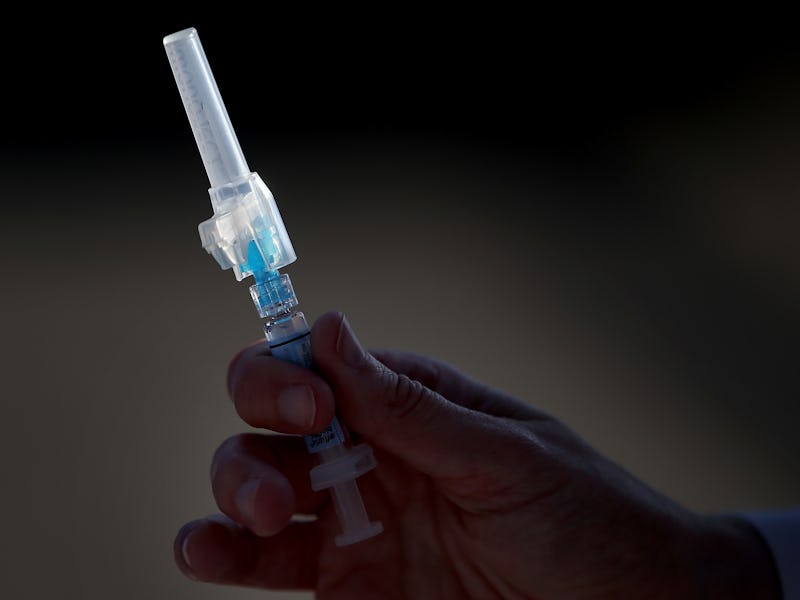The Zika Virus Vaccine: There's Good News and Bad News
Good news: Neutralizing antibodies! Bad news: Those antibodies might make infection worse.

With the Summer Olympics in Zika-stricken Rio less than a month away, the hunt to find a vaccine has never been more intense.
A team of researchers from Imperial College London announced today a breakthrough in a pair of papers published in the journals Nature and Nature Immunology: They discovered antibodies — the body’s custom-made weapons to fight against invading viruses — that can neutralize the Zika virus before it can cause infection. Knowing where and how these antibodies target a Zika particle is the first step in making a vaccine to do the same thing.
The antibodies, oddly, weren’t generated in people with Zika. They were from people with dengue, another devastating mosquito-borne disease common in Brazil and neighboring countries. While scientists already knew there was a link between Zika and dengue — they are, after all, transmitted by the same Aedes aegypti mosquito (and, possibly, its relatives) — they didn’t realize how closely they were related.
In the Nature paper, the research team outline their discovery that antibodies the body generates to protect against the dengue virus can latch onto Zika particles, too. Current efforts to make a vaccine and there are at least 35 ongoing right now — now have a more refined target on the virus particle to work on neutralizing.
But there’s a catch: People who have these dengue antibodies might be at a higher risk of contracting Zika, the Nature Immunology paper reported. There’s a mechanism known as “antibody-dependent enhancement” that essentially suggests that the antibodies that arise from one virus could make infection with a second virus worse. In other words, people who have had dengue — a big chunk of the Latin American population — may have been more susceptible to infection with Zika. While it’s too early to say definitively, the researchers suggest that the current Zika outbreak could have been driven by the population’s existing immunity to dengue.
People who have had dengue may have been more susceptible to infection with Zika.
This complicates matters for vaccine hunters. On one hand, we know dengue antibodies can neutralize Zika. But on the other hand, having dengue antibodies might make you more susceptible to Zika. It also works vice-versa.
And, since vaccination is, essentially, injecting a benign version of the virus into the body to force it into making antibodies, there’s a possibility that the Zika vaccine, if it ever gets developed, could make dengue infections worse. Conversely, dengue vaccinations could make Zika infections worse.
The new research isn’t likely to speed up the vaccine-finding process — Rio-bound athletes choosing to risk Zika infection are very much taking a leap into the unknown — but the findings, though befuddling, will make for a safer vaccine in the long run.
In the meantime, all Olympics-bound athletes and fans can do is follow the Zika-battling instructions so rhythmically laid out by the Jamaican government: